SUMMARY
This is AI generated summarization, which may have errors. For context, always refer to the full article.
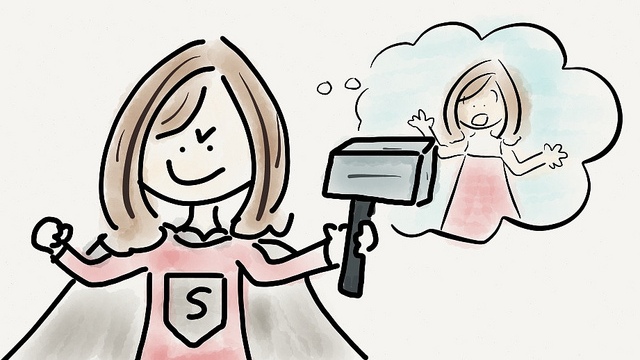
Until I wrote that last post about the 10 ways we sabotage our own success, I really had no idea just how negative my thoughts were and how often I think them. Based on the feedback I received, I’m guessing this is true for many, so I figured a follow-up might be in order – because just knowing you’re your own worst critic isn’t really enough to solve the problem.
I know this for a fact, because heck, I wrote that article, and I STILL subject myself to negative self-talk on a pretty regular basis. Case in point: my blog was recently nominated for a Tatt Award, and although I’m absolutely honored and thrilled—I’ll be honest—when I first saw the list of nominees, this was my immediate reaction:
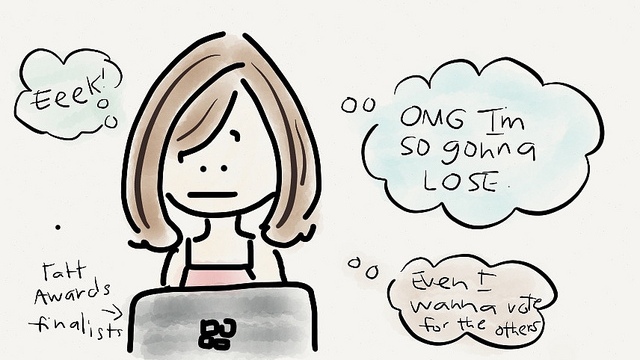
I guess that jumping straight to the negative is understandable in some situations, and maybe it’s not something we’ll be able get rid of altogether. But we CAN learn to pick these hypercritical thoughts out of our heads and squash them enough to minimize their damage.
Here are 6 things we can do that might help:
1. Give your inner critic a name – the sillier, the better
This article on negative self-talk says that giving your doomsday inner voice a silly name makes it more difficult to take it seriously, but I think naming it actually serves another important purpose.
Giving your inner critic a separate “Supervillain” identity allows you to see it as someone else, and NOT YOU. And it helps you to remember that this other, destructive entity lurking inside you is someone you need to fight – often.
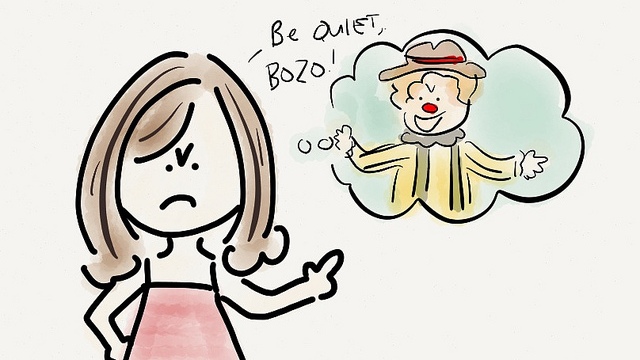
2. Spot the difference
Not all negative thoughts are necessarily destructive. (There is such a thing, for example, as Defensive Pessimism—whereby people anticipate negative outcomes so as to be prepared for every eventuality.) The key is to be attuned enough to what you’re thinking to tell the difference.
Is it YOU speaking – or is it the Silly Inner Supervillain? Is it conviction or condemnation? Constructive or critical? You can usually tell the difference by the actions these thoughts bring about.
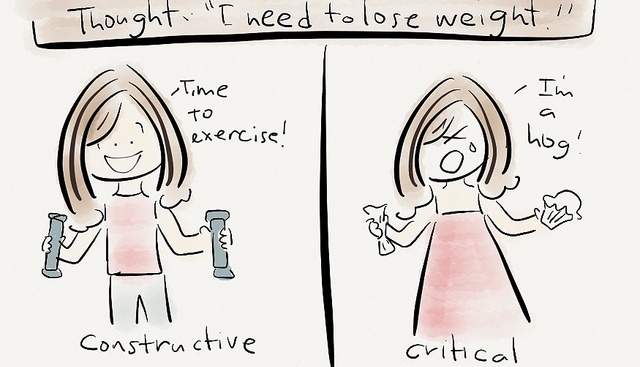
3. Lawyer up
Play attorney and grill that soul-sucking inner critic until it has no argument left. Tiny Buddha suggests 5 questions to immediately respond to negative thoughts with:
- So what?
- Who cares?
- Why is it a big deal?
- Why not?
- What if it doesn’t matter if I’m __________________ or not?
You can read more about these here—and feel free to add more. According to Amy Johnson, PhD, a psychologist and life coach, the more follow-up questions you ask your inner critic, the more you dilute the negative effects of your self-doubt.
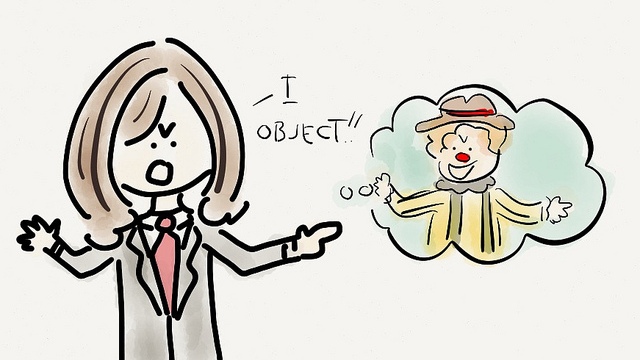
4. Channel your BFF
Psychologist Tamar Chansky suggests asking yourself, “What would my best friend say?” Think: How would your BFF react if someone else talked smack about you the way you do yourself.
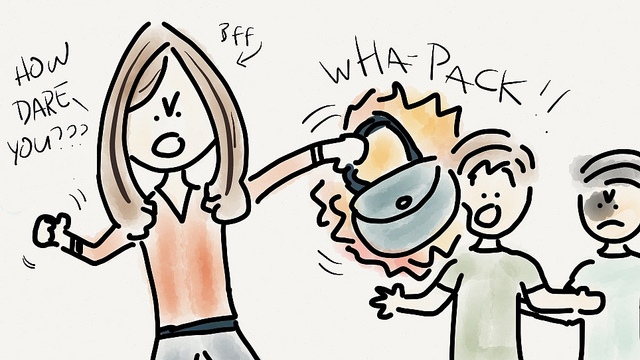
More often than not, you’ll find that when you look at yourself through the eyes of others, you’re really not half as awful as you seem to think.
5. State your doubts out loud
If you find you have a hard time channeling your BFF, then actually call your best friend and tell him/her what you’re thinking; or, tell a stranger. You can also write it down or leave it as an anonymous comment on some obscure blog if you want. You can do whatever you want but LET IT OUT.
Fears and doubts have a way of growing to alarming proportions when we keep them inside. Saying them out loud to someone else could make a world of difference.
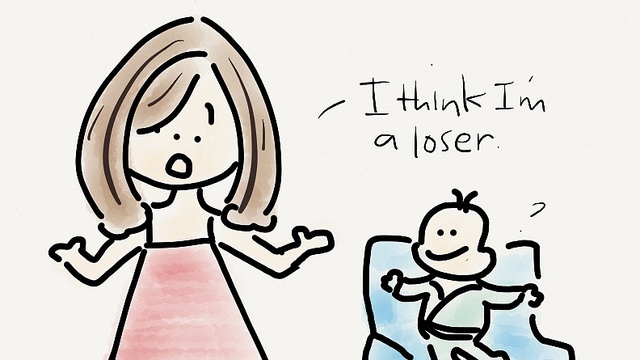
6. Switch off the spotlights
I once read a fascinating article about something called “The Spotlight Effect” – which I think we all suffer from to some extent. Basically, what the article says is that we think people notice (and judge) us two times more than they actually do.
“In the beam of imaginary spotlights, many of us suffer untold shame and create smaller, weaker, less zestful lives than we deserve. Terrified that the neighbors might gossip, the critics might sneer, the love letter might fall into the hands of evil bloggers, we never even allow our minds to explore what our hearts may be calling us to do. These efforts to avoid embarrassment often keep us from imagining, let alone fulfilling, the measure of our destiny. “ – Martha Beck, Oprah.com
Hey, I totally get this. It’s why I never dance at parties. I’m convinced that all eyes will be on me and my awkward moves.
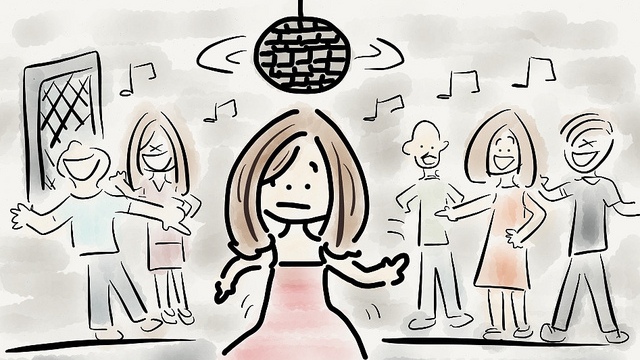
The truth is, half the things we worry about, or are afraid to do because of what other people might think, aren’t even that big a deal. And it’s kind of sad to think of all the things we’ve missed out on because of this self-imposed (and mostly baseless) doubt and fear.
So switch off the imaginary spotlights, stand up to your inner Supervillain, and just do what you gotta do. Even if you fail spectacularly, chances are you’ll find less judgment and more support than you think.
Stop worrying. Start living. – Rappler.com
Add a comment
How does this make you feel?
There are no comments yet. Add your comment to start the conversation.